How to Achieve What Matters Most
For most of my life, I have impulsively jumped into new projects. Ideas about things I want to accomplish are constantly swirling in my head. I want to learn to cook, take improv classes, and workout regularly.
I want to do it all. Mixing this inclination with a lack of follow through led to a long list of unfinished goals for me a few years ago. I excelled at getting started. When the motivation faded, I would quit a project and shift my focus to the next shiny project.
The frustration from this cycle propelled me to make changes. Over the next few years, I developed the habit of focusing on one goal at a time and making massive progress in one direction.
“Failure isn’t fatal, but failure to change might be” – John Wooden
Focus on the most important thing
About five years ago, I had a long list of projects that I was working on at the same time. The list included improving my personal finances, eating healthier, studying for my professional designation, and reading books regularly.
I didn’t make meaningful progress in any direction. I didn’t study consistently enough to pass my exams. I started working on my finances every few months but didn’t follow through after the first couple of days.
I was producing many “Incomplete” grades in my life. I was trying to do too many different things. Every goal was my highest priority. They were all a level 10 in importance. I didn’t prioritize or push off any projects for a later date.
Our society sends us a constant stream of messages that tell us we need to do it all now. We need to consume more information, check more email, and work longer hours.
We can combat the pressure to do it all by consciously taking a step back to look at the big picture. We can design our lives in a way that facilitates the achievement of what we want the most.
Our mind is scattered when we try to do too many things. Our thoughts are dispersed, our energy is diffused, and our actions are all over the place. We make small progress in many different directions.
When I decided to make significant changes in my life, the first step was to figure out the most important thing. Not the five most important things. This was a big change for me. I started going deep on one goal at a time.
Make massive progress
When we focus on our highest valued goal, we consciously decide to ignore many other interesting opportunities. We direct our attention to what matters most to us. We make massive progress in one area.
After my change in mindset, the first goal I tackled was eating healthier. I read many articles and several books about nutrition. I created a detailed plan that included a list of foods to cut out as well as a cheat day that helped me stay committed in the long run.
Eating healthy was the most important goal in my life for an entire year. Today, eating healthy most of the time is effortless due to the habits I developed. Once eating healthy was on cruise control, I tackled the next most important goal, which was improving my personal finances.
I achieved my most important goals by diving deep on one goal at a time. When we fully commit to a few goals and put off other goals, we can follow through more effectively and with less friction.
When we finish the goals we are currently working on, the other ones will still be there. We can pick them up at the right time.
Making consistent progress on our most important goal propels us to continue to take action. It fuels and motivates us. This cycle of action, progress, and motivation drives us to achieve what we want. We can’t make that consistent progress if we’re juggling too many projects.
“People think focus means saying yes to the thing you’ve got to focus on. But that’s not what it means at all. It means saying no to the hundred other good ideas that there are. You have to pick carefully.” – Steve Jobs
Reap lasting rewards
We continue reaping benefits years after accomplishing most goals. Four years ago, I focused on improving my personal finances for three months. My finances are still running smoothly and automated with minimal effort. I’m still reaping the rewards from the three months of work I did years ago.
By focusing on one thing at a time until crossing the finish line, we take advantage of the cycle of success. It seems like highly successful people have more hours in the day than average achievers. It’s like they unlocked cheat codes that allows them to get more done. The reality is that each time they achieve a goal, they learn lasting lessons and skills.
We don’t learn these valuable lessons if we leave most of our projects unfinished. Instead of growing, our lack of progress would lead to doubt and frustration. We would have cycled through many projects without producing changes in our routines, beliefs, and results.
In the road to accomplishing goals, we build habits and mindsets that make it easier to accomplish the next goal. We gain skills that equip us to reach the next level. At each new level, we have more tools, strategies, and tactics we can use to overcome obstacles. The rewards from focusing on the most important thing last a lifetime.
How do you focus on doing the right things instead of trying to do it all?
